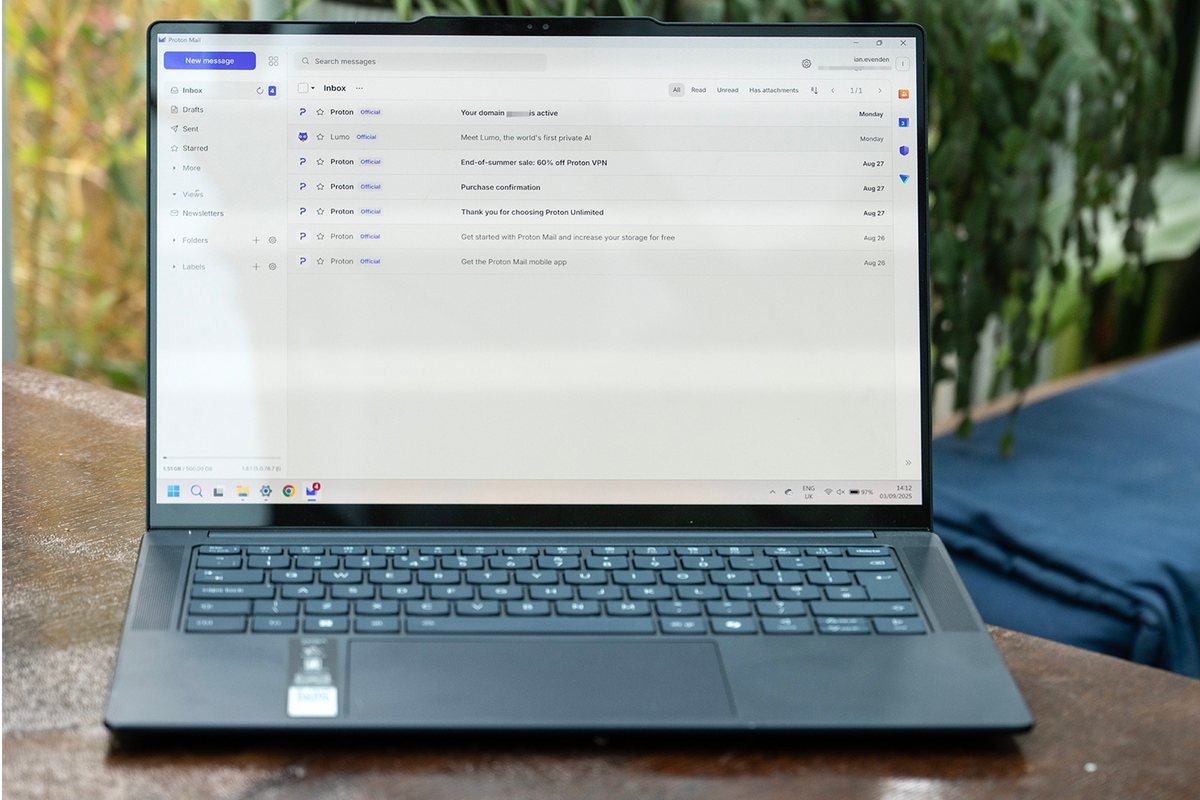
Setting up a new email account is a bit more complicated these days than it used to be, and there are a lot more choices than just Hotmail vs Yahoo, and whether to reuse the same password as your MySpace account (tip: don’t do this).
Now, in these days of malware, data breaches and fears about electronic eavesdropping, having an extra layer of security around your email is more important than ever. Proton Mail, from the Swiss company behind Proton Drive and the Proton VPN, offers end-to-end and zero-access encryption to help ensure what’s in your emails stays private, rather than scanning the text for advertising purposes or even to train AI-based large language models (LLMs). Not even Proton itself can see your email and attachments, which means you’ll need to be very careful about how you remember your password and where you keep the recovery package you can download. Luckily, Proton has its own password manager that you get with a subscription.
While there is a free version of Proton Mail, it remains at heart a subscription service, and if you want the most advanced security features - as well as useful cloud storage space and a VPN - you’ll need to subscribe.
So while this may put some off - we’re used to email being free, after all - if Proton Mail’s features appeal to you, it can be worth the investment.
How I tested
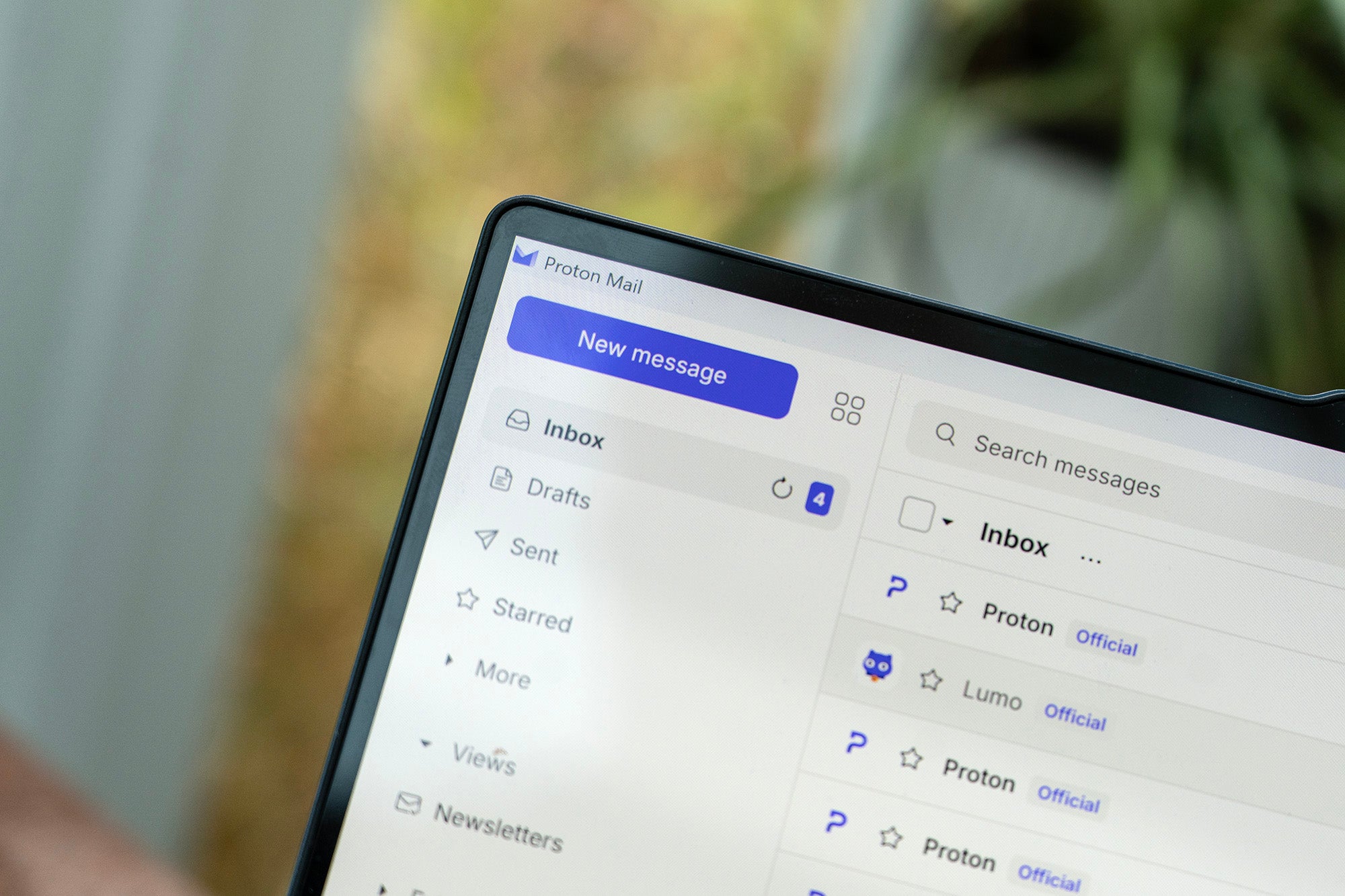
I installed Proton Mail, with an Ultimate subscription plan, on a Windows 11 PC and an Android phone, then used all its features, noting how they differ from similar offerings from Google and Microsoft. During testing, I considered the following criteria…
Why you can trust IndyBest reviews
Ian Evenden is a technology writer and editor who has been contributing to IndyBest since 2021. He’s been reviewing security products, such as antivirus and cloud storage to the best Chromebooks and keyboard.
Proton Mail
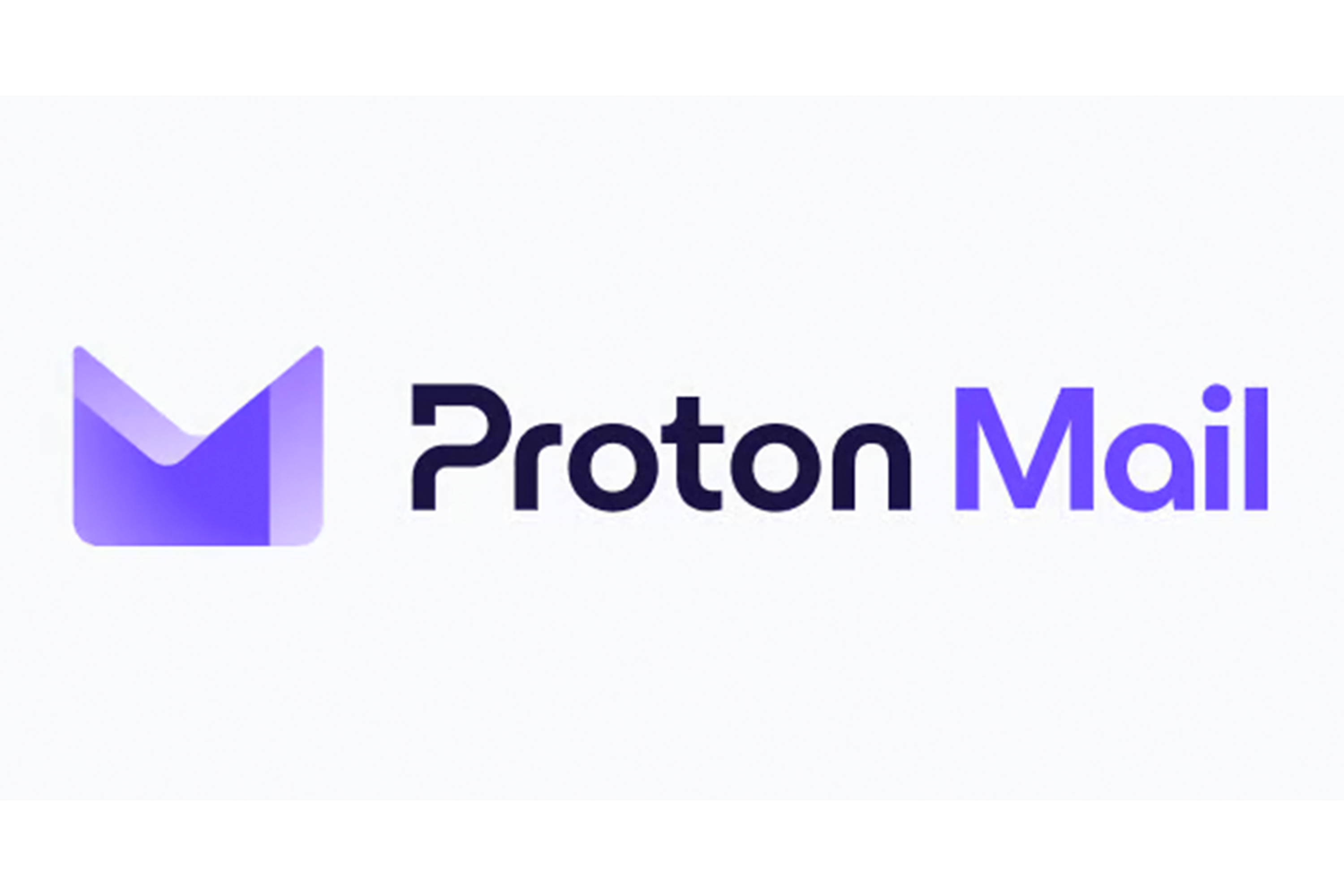
Why we love it
- Privacy-focused
- Zero-access encryption
- Can be used for free
Take note
- Best features require a subscription
- A subscription means getting Proton Drive too
- Can be complex to set up on desktop
Features
When you first log in through your browser, Proton Mail looks like every other webmail service, especially Google’s - a two-pane webmail interface. This means Gmail users will be able to switch over easily, but even if you’ve never used webmail before it’s nicely laid out, with a big ‘New message’ button at the top left and shortcuts to other Proton services on the right. Of these, the top two - contacts and calendar - will be most useful, with the links to the security centre and VPN being clicked more rarely, especially as the VPN button is little more than a link to download the Proton VPN app.
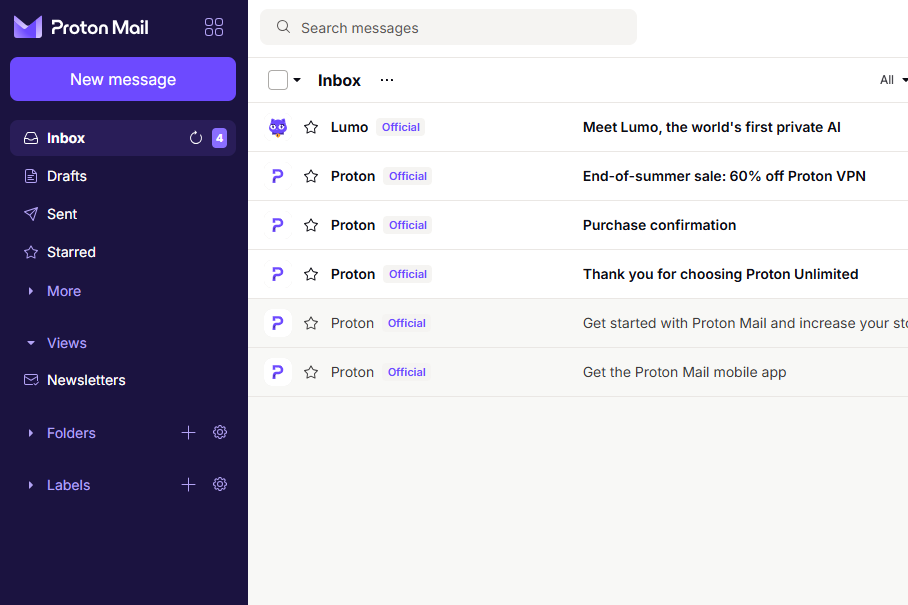
Proton Mail takes its security very seriously. Of course there's two-factor authentication, and Proton also makes a password manager you can use to generate and store a strong password that can be a lot longer than those supplied by Chrome. The company also has its own authenticator app, though you can use it with Google’s too, and there's dark web monitoring to let you know if your password has been included in a data breach or otherwise ended up somewhere it shouldn’t be.
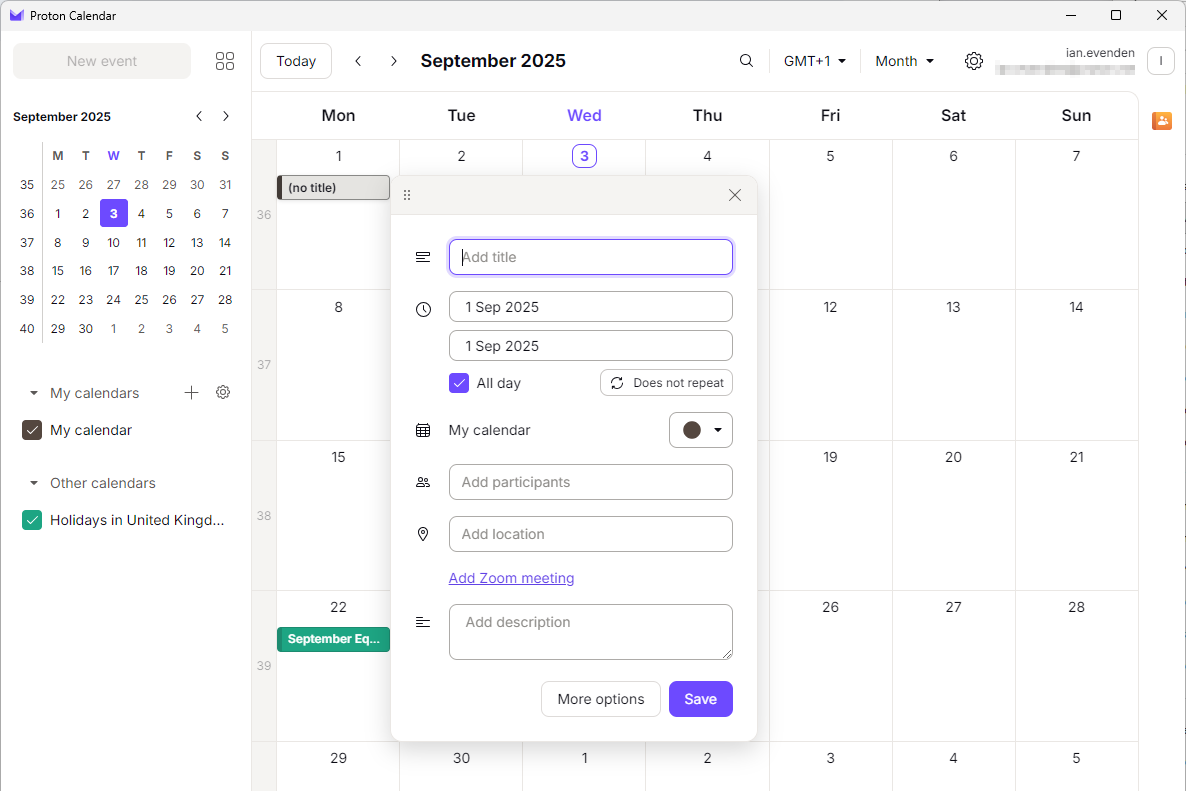
Being a subscription service, there are a few different tiers to explore. They’re arranged around how much Proton Drive space you get rather than any Proton Mail features, but an Unlimited subscription - which nets you 500GB of Proton Drive space and the Docs word processing web app too - allows you to run 15 different email addresses through your account. These can use the shorter pm.me domain, as well as more standard choices, and you can create aliases that can be used with online services such as eBay or other sites, with a SimpleLogin browser extension for Chrome, Safari and Firefox to simplify the process. These then forward automatically to your main account, meaning the site never sees your real email address.
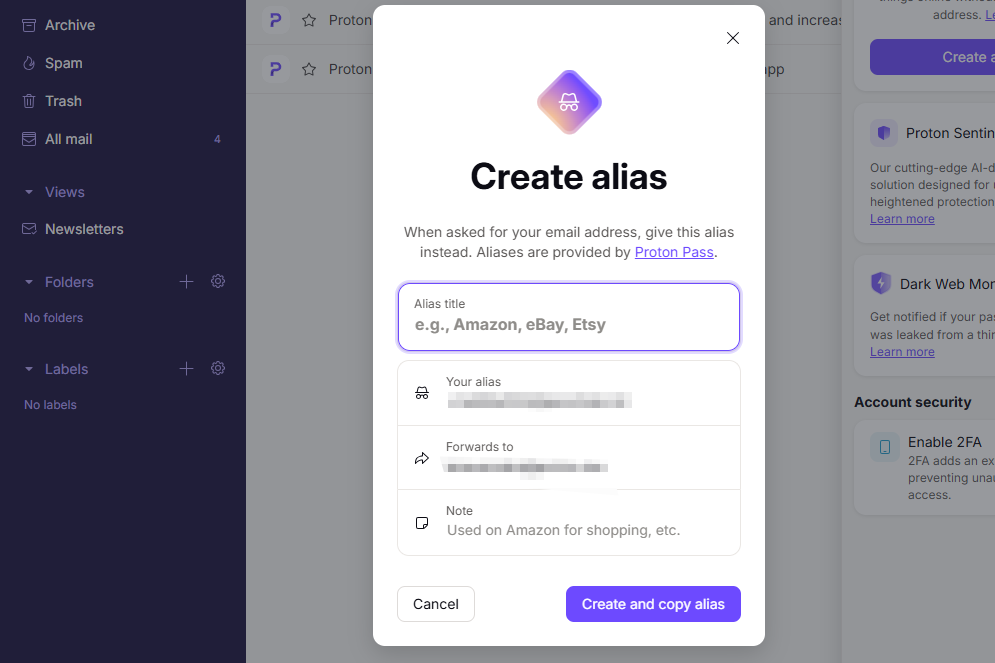
You can use Proton Mail to create email addresses for other domains you own. This involves adding a TXT record to the DNS on your domain management dashboard, a process that only takes a few seconds. These addresses don’t count toward your quota of 15, making Proton a good choice for managing a lot of custom email addresses, though it’s worth noting that mail storage is shared with your Proton Drive space, so if you’re receiving a lot of attachments it may start to fill up.
Performance
Proton Mail performs perfectly well through its web interface, but if you prefer a desktop app there's one available for Windows, Mac and Linux (which is a beta version at the time of writing), along with iOS and Android mobile solutions. If you want to use something you’re already familiar with, such as Outlook, Thunderbird or Apple Mail, you’ll have to use a Bridge app. This feels unnecessarily complicated, but is apparently necessary thanks to the way Proton’s encryption works.
Emails between Proton Mail users are end-to-end encrypted, while incoming mail from non-Proton addresses is stored with zero access. Email subject lines may not be encrypted, but once you’re aware of this potential weakness it’s easy enough to avoid putting identifying or sensitive information there. If you’re sending mail from your Proton account to someone you’re in contact with through other methods, you can password-protect your emails to them, supplying the password via encrypted chat such as Signal.
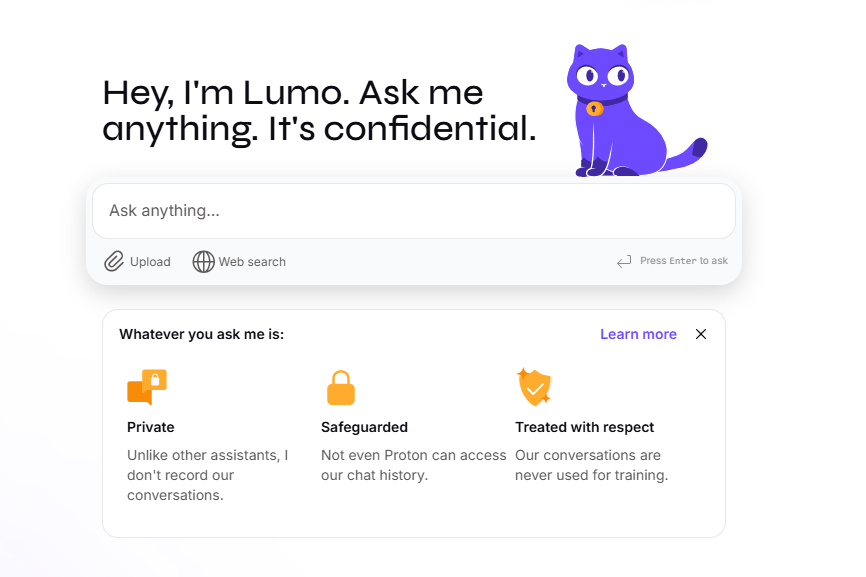
And chat, whether of the text or video variety, is one thing Proton doesn’t offer at the moment (although, a chat app is currently in development). For all it apes Google and Microsoft’s offerings, you won’t find a GChat or even Teams analogue on the Swiss company’s servers.
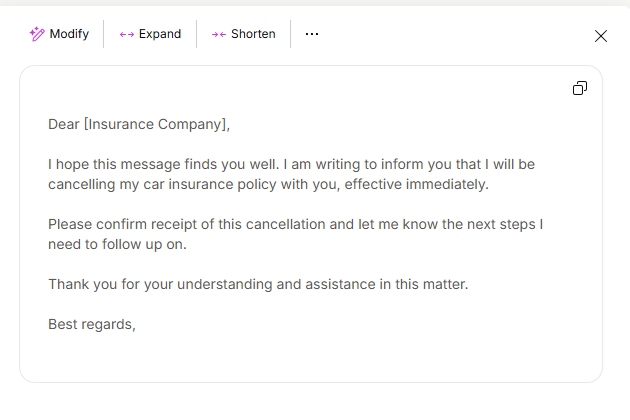
What you will find is a smattering of what we’re currently calling ‘AI’ - LLM-based writing tools. Proton Scribe can be run locally on your PC in a Chromium-based browser (Chrome, Edge and Safari plus others) or the desktop app on Mac, with Windows being browser-only until desktop app support arrives, if it meets requirements including a dedicated GPU with 6GB of VRAM (or an M-chip for Apple users). This is going to put it out of reach for lots of laptop users who rely on integrated graphics and NPUs, who will have to rely on the cloud. Clicking the Scribe button, which looks like a pink sparkly pen, gives you a few options: write a whole email from a prompt, proofread what you’ve already written, and expand or shorten an existing message. It works fairly fast, even using the cloud servers, though exactly how much use it will be in the real world is debatable. It’s off by default in the settings, and can be left that way.
There's also Lumo, billed as ‘AI that respects your privacy’. Lumo is an open-source AI assistant that operates in the same way as ChatGPT or Gemini, only without keeping logs of activity, using chats to train the AI, and with encrypted saved chats. Lumo claims, when asked, that its training data is made up of publicly available books, articles and websites, along with licensed datasets Proton has obtained permission to use and Proton's own internal documentation and help‑center articles. It also makes a point of saying it respects copyright rules. Of course, it would say that, but the good news is that Lumo is entirely optional, and isn’t being shoehorned into your everyday use of the mail service.
Buy now £8.19, Proton.me
Should you use Proton Mail?
Proton Mail offers free entry to a cloud ecosystem that’s more concerned with security and individual privacy than many of the other big providers, and it gets more useful if you subscribe. If you’re looking for an email provider that’s not going to use your messages to build a profile of you in order to sell adverts, then it’s well worth a look, and a subscription comes with extras such as cloud storage, password manager and a VPN that mean you can potentially leave Google or Microsoft behind - as far as mail and cloud services providers go, anyway. However, it’s a bit pricier than other options and lacks some features you might be dependent on, so while Proton makes an excellent email product, and has a refreshing approach to AI chatbots, it’s worth making sure it offers the services you need before you sign up.
Still unsure? Read our review of Proton VPN







